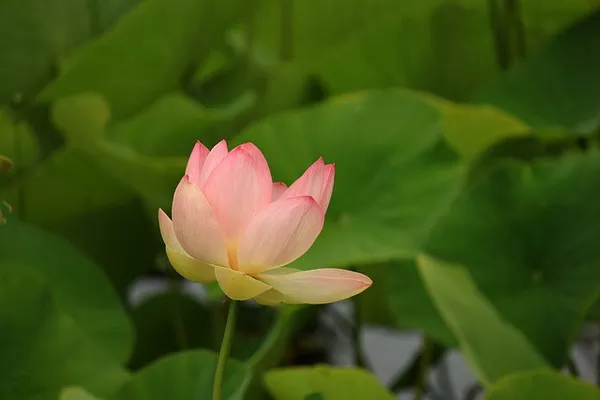The lotus flower, with its enchanting beauty and rich symbolism, has held a special place in various cultures and religions for centuries. Revered for its ability to rise above murky waters and bloom into a pristine blossom, the lotus is a symbol of purity, resilience, and spiritual enlightenment. This article delves into the profound meanings associated with lotus flowers, exploring their cultural, religious, and philosophical significance.
Cultural Significance:
Lotus flowers have deep roots in many cultures around the world, each attributing unique meanings to this exquisite bloom. In ancient Egyptian culture, the lotus symbolized rebirth and the sun’s journey across the sky. The flower’s daily emergence from the water mirrored the sun’s rise, making it a powerful symbol of regeneration and new beginnings.
In Hinduism and Buddhism, the lotus holds significant spiritual meaning. Known as the Padma in Sanskrit, it represents purity and divine beauty. The unfolding petals of the lotus are seen as a metaphor for the expansion of the soul and spiritual awakening. Additionally, the lotus is closely associated with various deities, including Lakshmi, the goddess of wealth and prosperity in Hinduism, and Buddha, who is often depicted sitting or standing on a lotus.
Symbol of Enlightenment:
The lotus is a central motif in Buddhist philosophy, where it is synonymous with enlightenment. In Buddhism, the journey of the lotus from the muddy waters to the surface symbolizes the human journey from ignorance to enlightenment. The lotus is revered as a representation of purity emerging from the muck of materialism and desire, ultimately reaching a state of spiritual enlightenment.
The concept of the lotus is also prevalent in Buddhist art and literature. The Lotus Sutra, one of the most important scriptures in Mahayana Buddhism, uses the lotus as a metaphor for the boundless potential for enlightenment within all beings.
Purity and Beauty:
One of the most universally recognized meanings of lotus flowers is purity. The ability of the lotus to emerge untarnished from murky waters is a powerful symbol of purity of heart and mind. In many cultures, the lotus is associated with the virtues of cleanliness and honesty.
Furthermore, the lotus is celebrated for its aesthetic appeal. Its symmetrical petals and vibrant colors have inspired artists, poets, and writers throughout history. The delicate beauty of the lotus serves as a reminder that, despite life’s challenges and difficulties, there is always an opportunity for growth, beauty, and purity.
Colors and Varieties:
Lotus flowers come in various colors, and each hue carries its own significance. The white lotus, for instance, is often associated with purity and spiritual perfection. Pink lotuses are linked to the Buddha and are considered symbols of devotion, while the blue lotus is associated with a victory over the senses.
In addition to color, different varieties of lotus also hold unique meanings. The blue Egyptian lotus, scientifically known as Nymphaea caerulea, was sacred in ancient Egypt and symbolized the sun’s daily rebirth. Understanding the diverse symbolism attributed to different lotus varieties adds depth to the overall significance of this captivating flower.
Cultural Practices and Rituals:
Lotus flowers are frequently used in cultural practices and rituals, adding a layer of symbolism to various ceremonies. In Hindu and Buddhist traditions, lotus flowers are often offered to deities as a symbol of devotion, purity, and spiritual dedication. The presence of lotus motifs in religious art and architecture further emphasizes the flower’s importance in these cultures.
In traditional Chinese medicine, various parts of the lotus plant are used for their medicinal properties. The flower, seeds, and rhizomes are believed to have therapeutic benefits, ranging from improving digestion to promoting mental clarity. This practical use of the lotus underscores its cultural relevance in everyday life.
See Also How To Get Free Flowers On Your Birthday
Conclusion:
The lotus flower’s profound symbolism extends across cultures, religions, and traditions, weaving a rich tapestry of meanings that resonate with people around the world. Whether representing purity, enlightenment, or the triumph of beauty over adversity, the lotus serves as a timeless and universal symbol of hope and spiritual awakening. As we explore the cultural significance, religious connotations, and aesthetic allure of lotus flowers, we come to appreciate the enduring impact this exquisite bloom has had on human consciousness throughout the ages.


